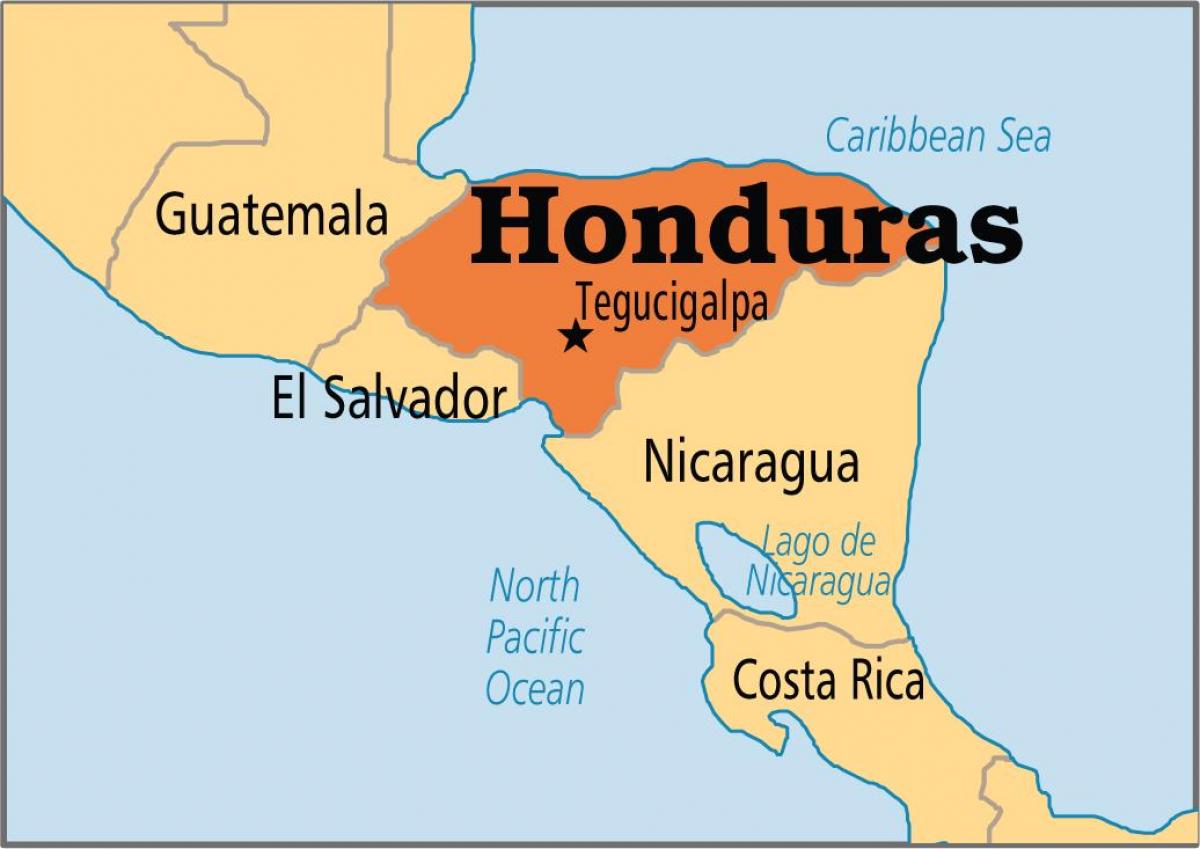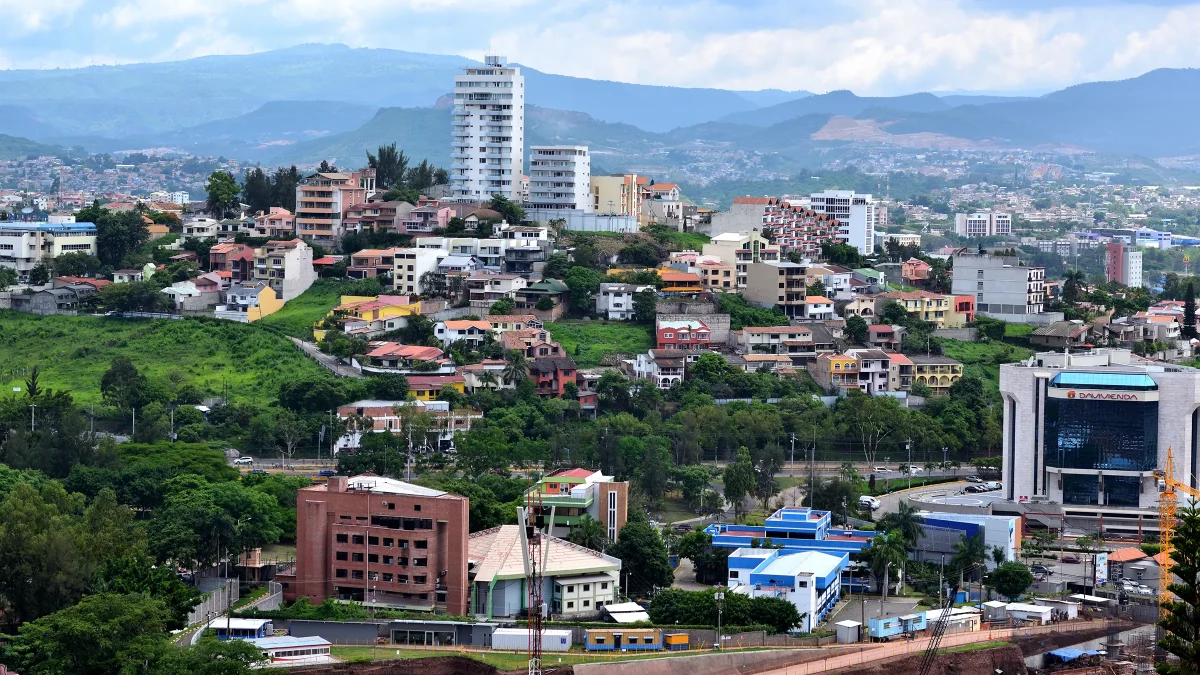What's The Capital Of Honduras? A Comprehensive Guide To Tegucigalpa
When people ask, "What's the capital of Honduras?", the answer is Tegucigalpa. As the heart of Honduras, this city holds immense cultural, historical, and political significance. Understanding Tegucigalpa's role is essential for anyone interested in Central American geography or history.
Tegucigalpa is not just a geographical location; it's a vibrant hub of activity that defines Honduras. From its bustling streets to its rich heritage, the city offers a fascinating glimpse into the country's past and present. This article will delve into the capital's history, demographics, economy, and more, providing a comprehensive overview.
Whether you're a student, a traveler, or simply curious about world capitals, this guide will answer all your questions about Tegucigalpa. We'll explore its landmarks, cultural significance, and why it stands as a crucial center in Central America. Let's dive in and discover what makes this city unique!
Read also:Xxxleaked The Untold Story Behind The Controversy And What It Means For You
Table of Contents
- The History of Tegucigalpa
- Geography and Climate
- Demographics and Population
- Economy and Industry
- Cultural Highlights
- Notable Landmarks and Attractions
- Education System
- Transportation and Infrastructure
- Politics and Governance
- The Future of Tegucigalpa
The History of Tegucigalpa
Early Beginnings
Tegucigalpa's history dates back to the early 16th century when Spanish settlers established it as a mining town. The city's name comes from the Nahuatl language, meaning "silver mountain," reflecting its origins as a hub for silver extraction. Over time, Tegucigalpa grew in importance, eventually becoming the capital of Honduras in 1880.
Growth and Development
The city's growth was fueled by its strategic location and abundant natural resources. During the 20th century, Tegucigalpa underwent significant transformations, expanding its infrastructure and becoming a center for trade and commerce. Today, it remains a vital economic and cultural hub in the region.
Key historical milestones include:
- 1578: Tegucigalpa is officially founded as a mining town.
- 1880: Tegucigalpa becomes the capital of Honduras.
- 1998: The city is heavily impacted by Hurricane Mitch, leading to extensive reconstruction efforts.
Geography and Climate
Tegucigalpa is located in the central part of Honduras, nestled within the Valle del Sur. Its elevation ranges from 900 to 1,500 meters above sea level, contributing to its unique climate. The city experiences a subtropical highland climate, characterized by mild temperatures year-round.
Climate Patterns
The climate in Tegucigalpa is influenced by its altitude and proximity to the Pacific and Atlantic Oceans. The dry season typically lasts from November to April, while the rainy season spans from May to October. Average temperatures range from 18°C to 28°C, making it a comfortable place to live and visit.
Demographics and Population
Tegucigalpa is home to approximately 1.3 million people, making it one of the largest cities in Central America. The population is diverse, with a mix of indigenous, mestizo, and European influences. This cultural diversity enriches the city's social fabric and contributes to its vibrant atmosphere.
Read also:Porn Mms A Comprehensive Guide To Understanding Its Impact And Risks
Population Growth
Over the past few decades, Tegucigalpa has experienced rapid population growth due to migration from rural areas. This influx has led to urban expansion and increased demand for housing, education, and healthcare services. According to the World Bank, the city's population is projected to continue growing, emphasizing the need for sustainable development.
Economy and Industry
Tegucigalpa serves as the economic engine of Honduras, contributing significantly to the country's GDP. The city's economy is driven by a mix of industries, including manufacturing, finance, and services. Key sectors include:
- Manufacturing: Textiles, clothing, and food processing.
- Finance: Banking and insurance services.
- Services: Tourism, retail, and education.
Challenges and Opportunities
While Tegucigalpa's economy is robust, it faces challenges such as unemployment and income inequality. However, the city also presents numerous opportunities for growth, particularly in technology and innovation. Investments in infrastructure and education are essential for fostering economic development and improving living standards.
Cultural Highlights
Tegucigalpa is a city rich in culture, reflecting the diverse heritage of Honduras. From traditional festivals to modern art, the city offers a wide array of cultural experiences. Some notable cultural highlights include:
- The annual Feria de San Miguel, celebrating the city's patron saint.
- The National Museum of Honduras, showcasing the country's history and archaeology.
- Local cuisine, featuring dishes like baleadas and tamales.
Art and Music
The city is home to a thriving arts scene, with numerous galleries and performance venues. Traditional music, such as marimba and punta, coexists with contemporary genres, creating a vibrant musical landscape. Tegucigalpa's cultural diversity ensures there's always something new to discover.
Notable Landmarks and Attractions
Historical Sites
Tegucigalpa is filled with historical landmarks that tell the story of its past. Key attractions include:
- Catedral Metropolitana: A stunning example of colonial architecture.
- Palacio Nacional: The seat of the Honduran government.
- Parque Central: A central hub for social gatherings and events.
Natural Beauty
Beyond its urban landscape, Tegucigalpa offers access to breathtaking natural beauty. The La Tigra National Park, located just outside the city, provides opportunities for hiking, birdwatching, and exploring Honduras's rich biodiversity.
Education System
Tegucigalpa boasts a strong education system, with numerous schools and universities catering to students of all ages. The city is home to prestigious institutions like the National Autonomous University of Honduras (UNAH), which plays a crucial role in shaping the country's future leaders.
Challenges in Education
Despite its strengths, the education system in Tegucigalpa faces challenges such as limited resources and access. Efforts are underway to improve educational outcomes through government initiatives and partnerships with international organizations.
Transportation and Infrastructure
Tegucigalpa's transportation network includes buses, taxis, and private vehicles, connecting the city to other parts of Honduras. The Toncontín International Airport serves as a gateway for international travelers, while the city's road network facilitates domestic travel.
Future Developments
Plans are in motion to enhance Tegucigalpa's infrastructure, including the expansion of public transportation systems and improvements to road safety. These developments aim to reduce congestion and improve the quality of life for residents.
Politics and Governance
Tegucigalpa serves as the political center of Honduras, housing the national government and various administrative offices. The city's governance is overseen by a mayor and city council, working together to address the needs of its citizens.
Key Issues
Challenges faced by Tegucigalpa's government include public safety, environmental sustainability, and economic development. Addressing these issues requires collaboration between local leaders, community organizations, and international partners.
The Future of Tegucigalpa
As Tegucigalpa continues to grow, its future looks promising. Investments in technology, education, and infrastructure are paving the way for a brighter tomorrow. By embracing innovation and fostering inclusivity, the city can overcome its challenges and thrive in the years to come.
Call to Action
Now that you know the answer to "What's the capital of Honduras?" and have learned about Tegucigalpa's rich history and vibrant culture, we invite you to explore this fascinating city further. Share this article with friends and family, and don't forget to check out our other guides on Central American destinations.
In conclusion, Tegucigalpa is a city of immense significance, offering a glimpse into Honduras's past, present, and future. Whether you're planning a visit or simply expanding your knowledge, this guide has provided valuable insights into what makes Tegucigalpa unique. Thank you for reading, and we hope you've enjoyed this journey through the capital of Honduras!

